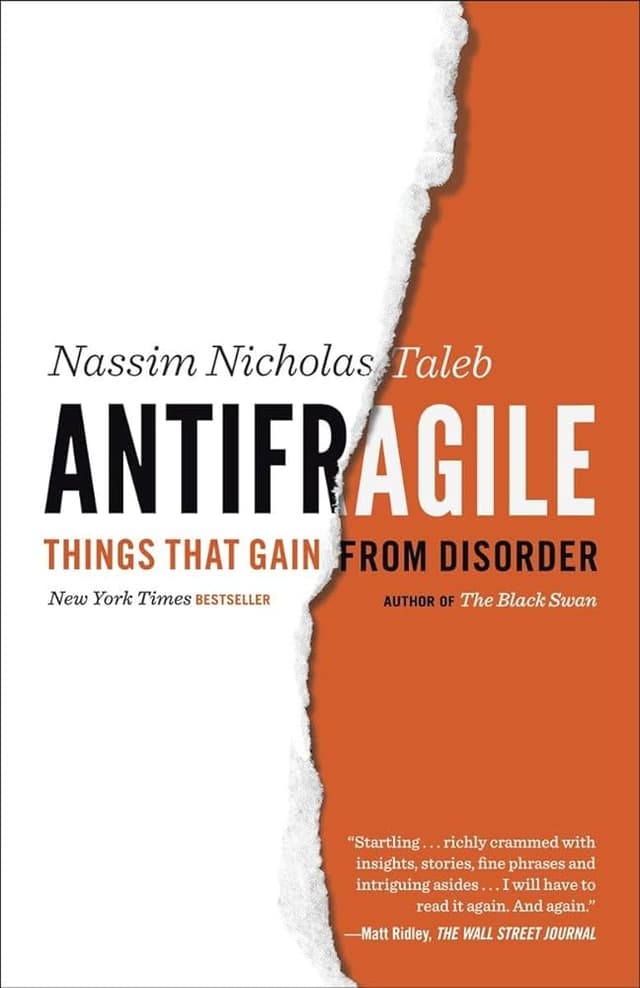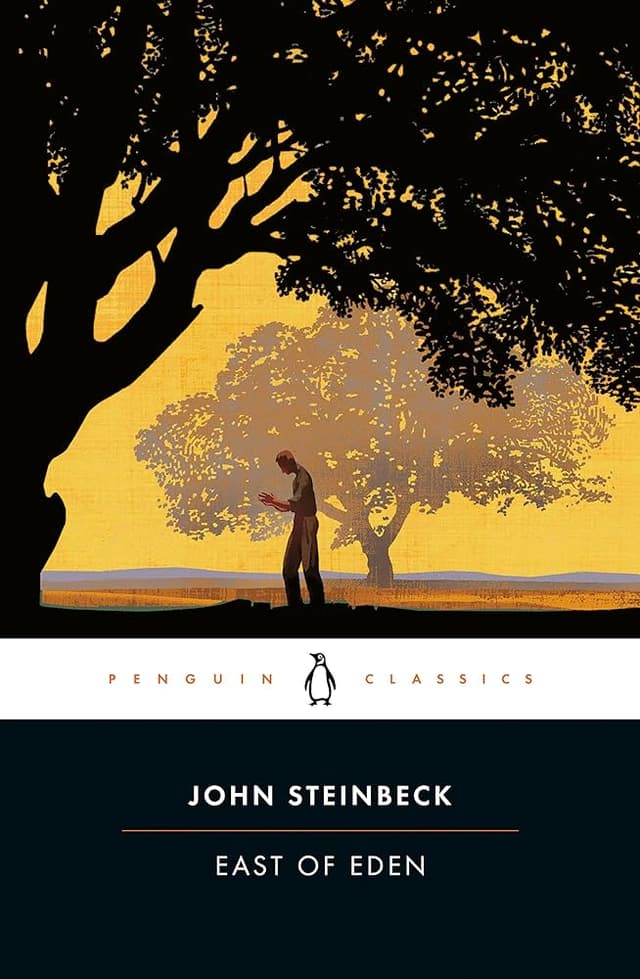Antifragile: Things That Gain from Disorder vs. East of Eden
Antifragile: Things That Gain from Disorder
"Antifragile: Things That Gain from Disorder" by Nassim Nicholas Taleb is a groundbreaking exploration of systems and entities that thrive and grow stronger in the face of stress, volatility, and chaos. Taleb introduces the concept of "antifragility," which goes beyond resilience or robustness. Through a mix of philosophy, practical wisdom, and real-world examples, Taleb illustrates how embracing uncertainty and leveraging disorder can lead to success and innovation. This book is essential for anyone interested in risk management, personal development, and understanding how to benefit from uncertainty and change.
East of Eden
In his journal, Nobel Prize winner John Steinbeck called East of Eden “the first book,” and indeed it has the primordial power and simplicity of myth. Set in the rich farmland of California’s Salinas Valley, this sprawling and often brutal novel follows the intertwined destinies of two families—the Trasks and the Hamiltons—whose generations helplessly reenact the fall of Adam and Eve and the poisonous rivalry of Cain and Abel.

Reviews
Reviewed on 2/29/2024
I remember reading Antifragile when it first came out and it made a huge impression. It changed the way I think in plenty of subtle ways. I've been rereading Nassim Nicholas Taleb recently, starting with Black Swan. I really want to reread Antifragile this year too.
Reviews
| Item | Votes | Upvote |
|---|---|---|
| Innovative and original concepts | 1 | |
| Practical applications across various fields | 1 | |
| Engaging and thought-provoking narrative | 1 |
| Item | Votes | Upvote |
|---|---|---|
| Taleb's writing style can be polarizing | 1 |
| Item | Votes | Upvote |
|---|---|---|
| No pros yet, would you like to add one? | ||
| Item | Votes | Upvote |
|---|---|---|
| No cons yet, would you like to add one? | ||
Frequently Asked Questions
'Antifragile: Things That Gain from Disorder' by Nassim Nicholas Taleb and 'East of Eden' by John Steinbeck are two vastly different books, each excelling in their own right. 'Antifragile' focuses on the concept of thriving amid chaos and uncertainty, making it highly valuable for those interested in risk management, personal development, and innovative thinking. It offers practical applications and thought-provoking narratives but has a polarizing writing style. On the other hand, 'East of Eden' is a literary classic that explores profound themes of good and evil through the intertwined destinies of two families in California's Salinas Valley. It is a rich, sprawling novel with mythic undertones. The choice between the two depends on whether you are looking for philosophical and practical insights or a deep, mythic literary experience.
'Antifragile: Things That Gain from Disorder' offers more practical applications compared to 'East of Eden.' Nassim Nicholas Taleb's work provides innovative concepts and real-world examples that can be applied across various fields such as risk management, personal development, and innovation. 'East of Eden,' while being a literary masterpiece, primarily offers deep philosophical and emotional insights rather than practical applications.
Engagement is subjective and depends on the reader's interests. 'Antifragile: Things That Gain from Disorder' is engaging for readers interested in philosophy, risk management, and practical wisdom, offering a thought-provoking narrative. However, some may find Taleb's writing style polarizing. 'East of Eden' is engaging for readers who enjoy rich, sprawling novels with deep emotional and philosophical themes. Its mythic undertones and exploration of good and evil can captivate those who appreciate classic literature.
'Antifragile: Things That Gain from Disorder' by Nassim Nicholas Taleb is a groundbreaking exploration of systems and entities that thrive and grow stronger in the face of stress, volatility, and chaos. Taleb introduces the concept of 'antifragility,' which goes beyond resilience or robustness. Through a mix of philosophy, practical wisdom, and real-world examples, Taleb illustrates how embracing uncertainty and leveraging disorder can lead to success and innovation. This book is essential for anyone interested in risk management, personal development, and understanding how to benefit from uncertainty and change.
Pros of 'Antifragile: Things That Gain from Disorder' include its innovative and original concepts, practical applications across various fields, and an engaging and thought-provoking narrative. However, a con noted by some readers is that Taleb's writing style can be polarizing.
Nassim Nicholas Taleb is a renowned scholar, statistician, and former trader known for his work on probability, uncertainty, and risk management. He is the author of several influential books, including 'The Black Swan,' 'Fooled by Randomness,' and 'Antifragile.' Taleb's work often focuses on the limits of knowledge and the impact of rare, unpredictable events.
'East of Eden' is a novel by Nobel Prize winner John Steinbeck. Set in California’s Salinas Valley, it follows the intertwined destinies of two families—the Trasks and the Hamiltons. The novel explores themes of good and evil, drawing parallels to the fall of Adam and Eve and the rivalry of Cain and Abel.
The author of 'East of Eden' is John Steinbeck, a Nobel Prize-winning American author known for his impactful and vivid storytelling. Steinbeck's works often explore themes of social and economic issues.
'East of Eden' delves into major themes such as good versus evil, the concept of free will, and the quest for identity. It also explores familial relationships and the moral struggles within them.
'East of Eden' is set in the rich farmland of California’s Salinas Valley. The setting plays a significant role in the novel, providing a backdrop that enhances the dramatic and often brutal events of the story.




















